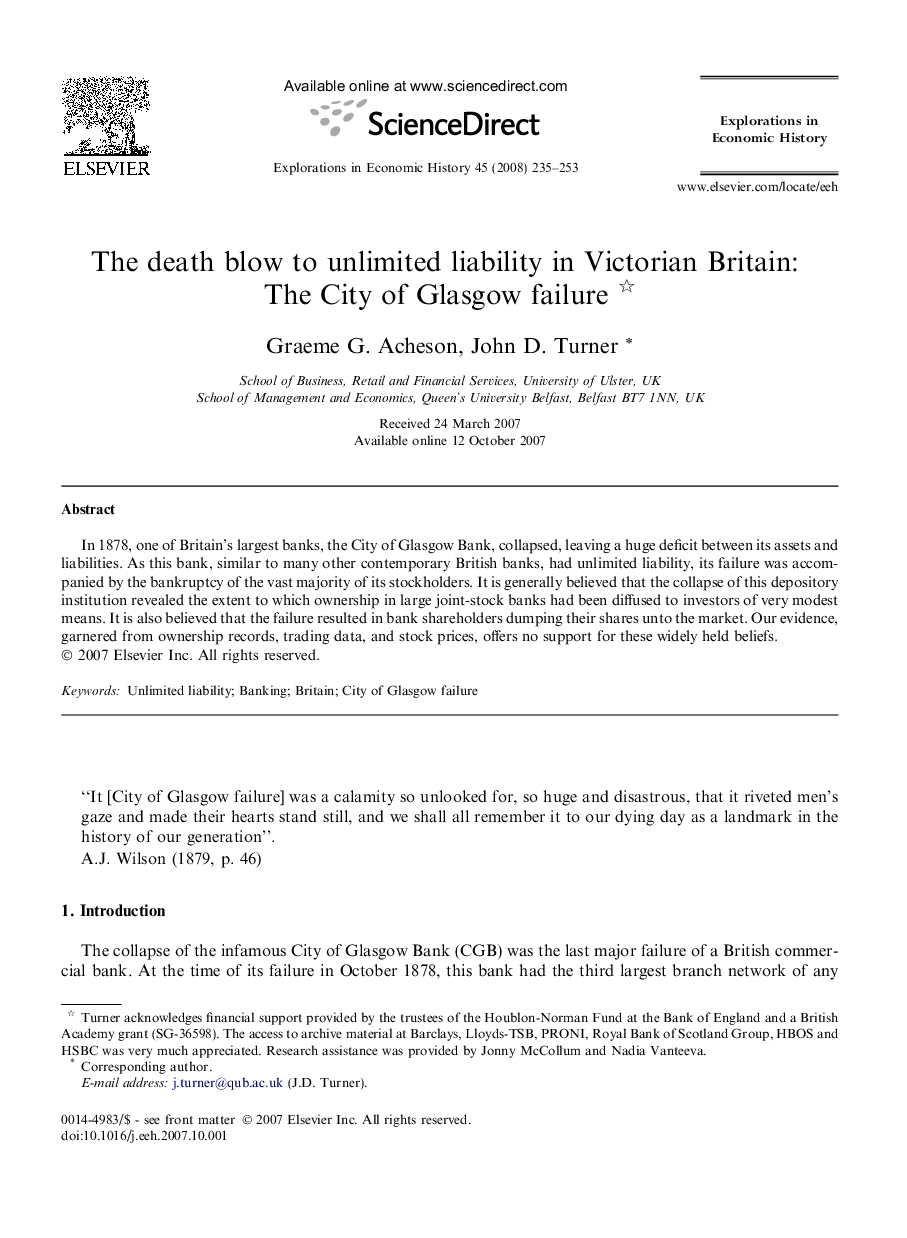| Article ID | Journal | Published Year | Pages | File Type |
|---|---|---|---|---|
| 5068989 | Explorations in Economic History | 2008 | 19 Pages |
Abstract
In 1878, one of Britain's largest banks, the City of Glasgow Bank, collapsed, leaving a huge deficit between its assets and liabilities. As this bank, similar to many other contemporary British banks, had unlimited liability, its failure was accompanied by the bankruptcy of the vast majority of its stockholders. It is generally believed that the collapse of this depository institution revealed the extent to which ownership in large joint-stock banks had been diffused to investors of very modest means. It is also believed that the failure resulted in bank shareholders dumping their shares unto the market. Our evidence, garnered from ownership records, trading data, and stock prices, offers no support for these widely held beliefs.
Related Topics
Social Sciences and Humanities
Arts and Humanities
History
Authors
Graeme G. Acheson, John D. Turner,
